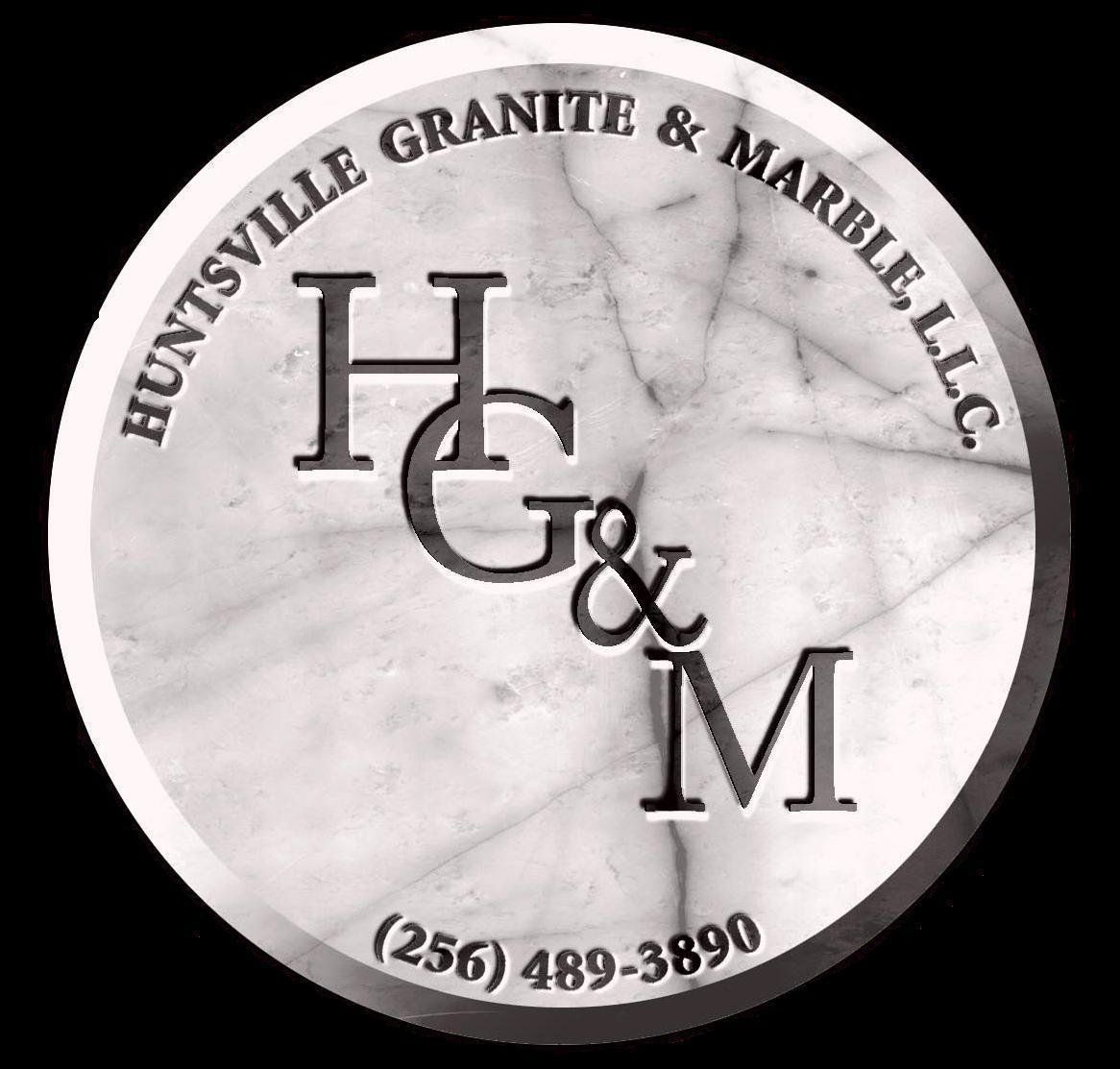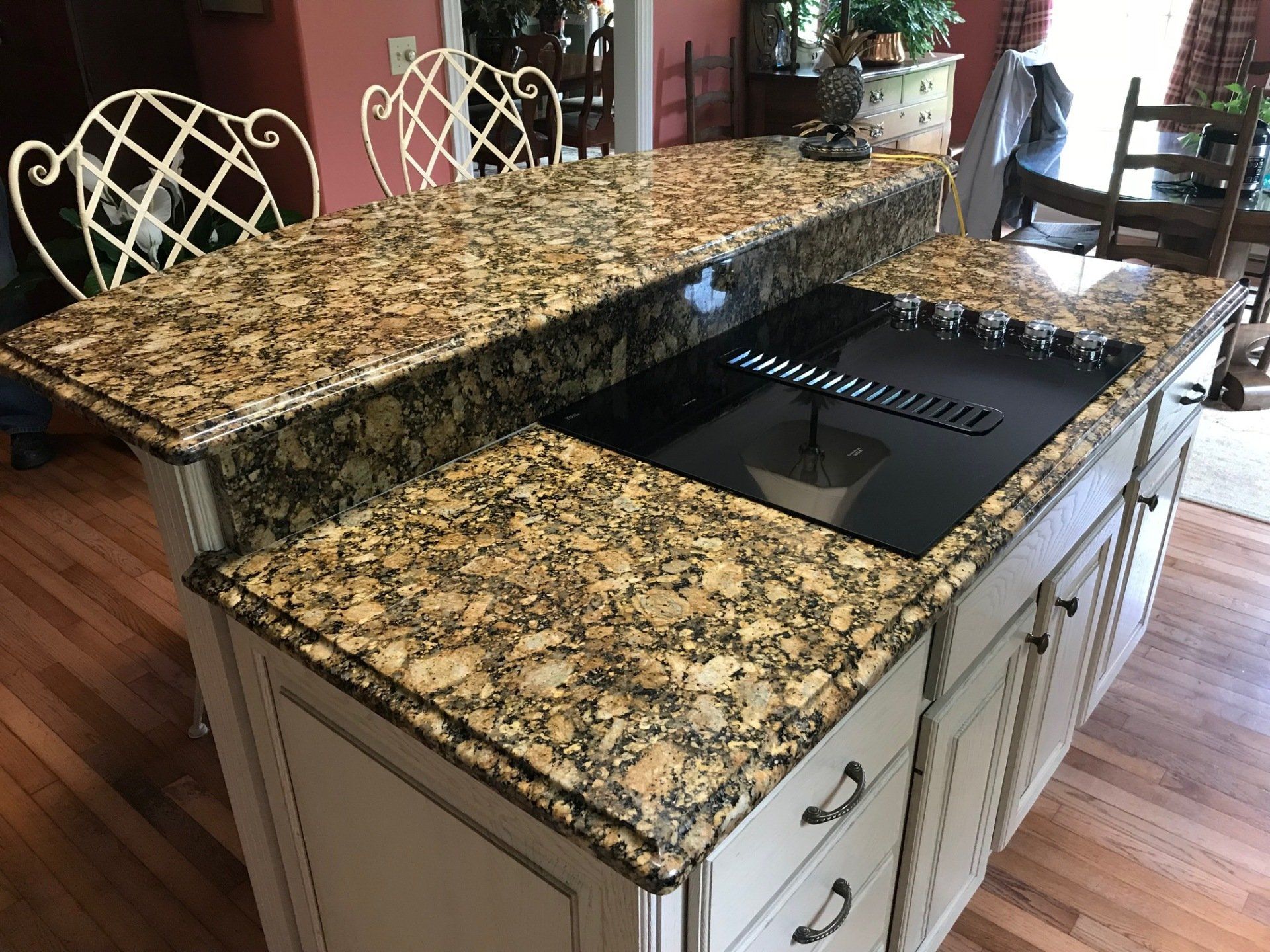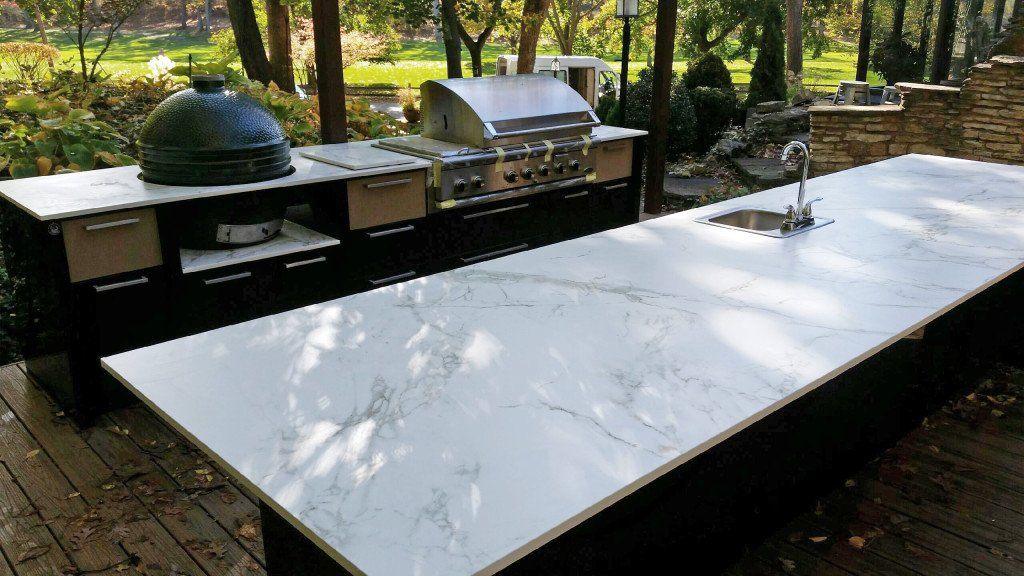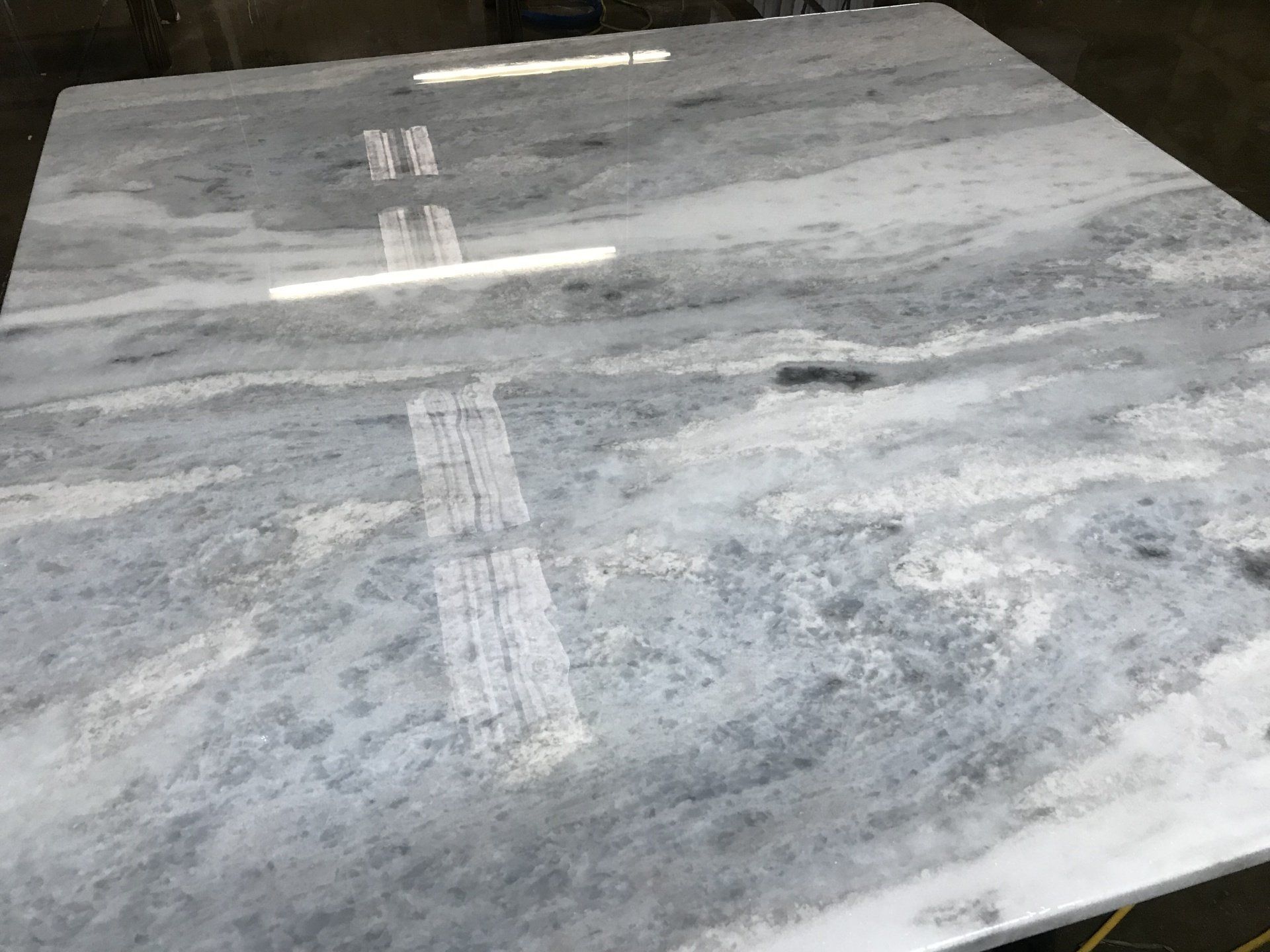
What is Etching?
Etching only occurs in calcium based stones such as Marble, Limestone, or Travertine. GRANITE IS NOT a calcium based stone, therefore under normal circumstances it will not etch.
Marble is a softer stone than granite...therefore etching occurs when the calcium carbonate makeup of the stone is eaten away at from acidic substances leaving dull spots known as "ETCHES". It is a chemical reaction that will happen with Marble.
What is Staining?
Stains, unfortunately, can occur in ALL countertop materials regardless of what manufacturers or countertop sales people tell you. With that being said, some materials are much more resistant to stains than others. Granite and Quartz for example are much more resistant to staining than a more porous based stone such as Marble.
Thankfully, most stains are relatively easy to remove by a trained stone fabricator. At Huntsville Granite & Marble our staff is trained and certified annually by a "Dry-Treat" sealing product expert. Dry-Treat is widely considered to be the premier hard surface sealing product on the market today and we apply this product as recommended by the manufacturer to help prevent staining.
Staining is NOT a common occurrence we face on counter tops we install, however, they can happen. We always recommend cleaning with mild soap and water and to clean up spills when they happen. Feel free to call or visit us anytime with questions!
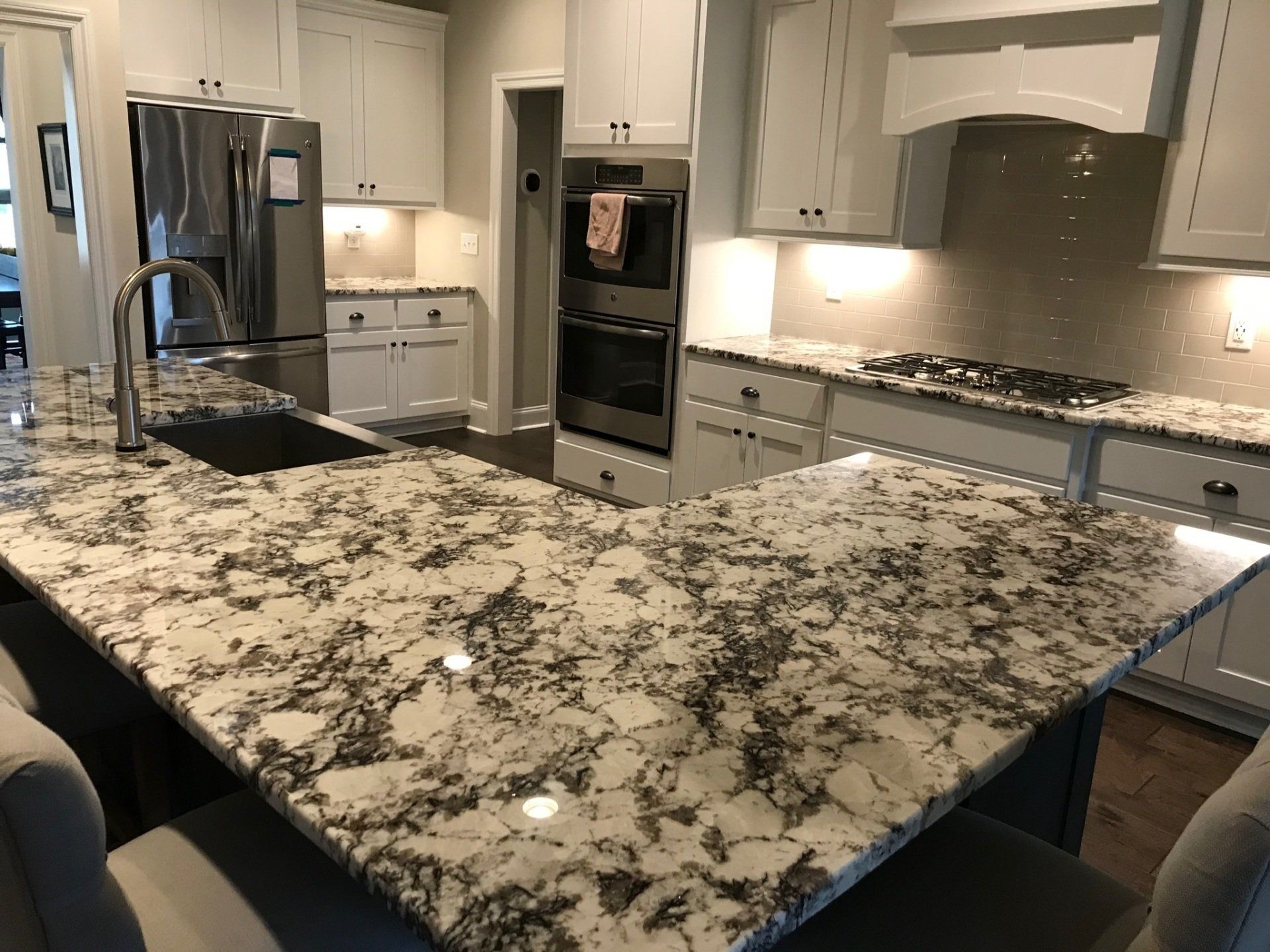
One of the most common questions that customers ask our staff regarding a new counter top purchase is... "What is the difference between granite and quartz counter tops". Whether the customer is building a new home or simply remodeling their existing kitchen or bathroom space, the decision to choose between Granite or Quartz is very common.
As you research both Granite and Quartz, you will find contradicting opinions and articles on both ends of the spectrum. One review may rave about Granite being the best counter top option, while another review will explain why going with Quartz is the best decision. Regardless of what material you choose, you can't go wrong with either stone!
One Basic Difference:
Granite Counter tops are a natural stone and Quartz Counter tops are manufactured.
Granite is formed deep beneath the Earth's surface from boiling molten rock called magma. The magma builds up pressure from the intense heat and rises through the Earth's crust via cracks and crevasses. As the magma cools down, it forms Granite. The Granite is then mined and cut into slabs.
Quartz counter tops are manufactured using a mixture of stone chips, resins, and pigments. The mixture is then heated to form the final product for use in your home. Quartz counter tops can also be referred to as "engineered stone counter tops" or "manufactured stone counter tops."
Looks/Appearance:
Granite is a naturally occurring stone, therefore, no two slabs of granite will be the same. Choosing Granite for your home offers endless options of colors, patterns, and variations for your home. Granite counter tops offer a homeowner a natural and unique look that is original to your home only.
Quartz stone counter tops tend to be more consistent in color and pattern. However, many Quartz manufacturers are evolving to offer colors and patterns that do mimic natural stone.
Durability:
Granite is one of the hardest materials on Earth and is extremely durable. With normal everyday use, your Granite counter top will last a lifetime.
Quartz is just as hard as Granite, making it extremely durable as well. With normal everyday use, Quartz will last a very long time.
Maintenance:
Cleaning Granite and Quartz Countertops - We recommend using mild soap, warm water, and a soft cotton cloth to clean both surfaces.
Cost:
The cost of Granite and Quartz varies depending on the product. There are Granite slabs that cost more than Quartz slabs and there are Quartz slabs that are more expensive than Granite slabs. Once again, it depends on what material and color you choose.
Summary:
So which is better? It depends on personal preference and style. One customer appreciates the natural veining and movement found in many of our Granite slabs, while another customer prefers the consistency of a Quartz product. Both Granite and Quartz will improve your kitchen or bathroom space for years to come and increase the value of your home.
Here at Huntsville Granite & Marble we pride ourselves on providing a collaborative experience from initial stone selection to your final installation.
Feel free to call or email us with any questions you have.
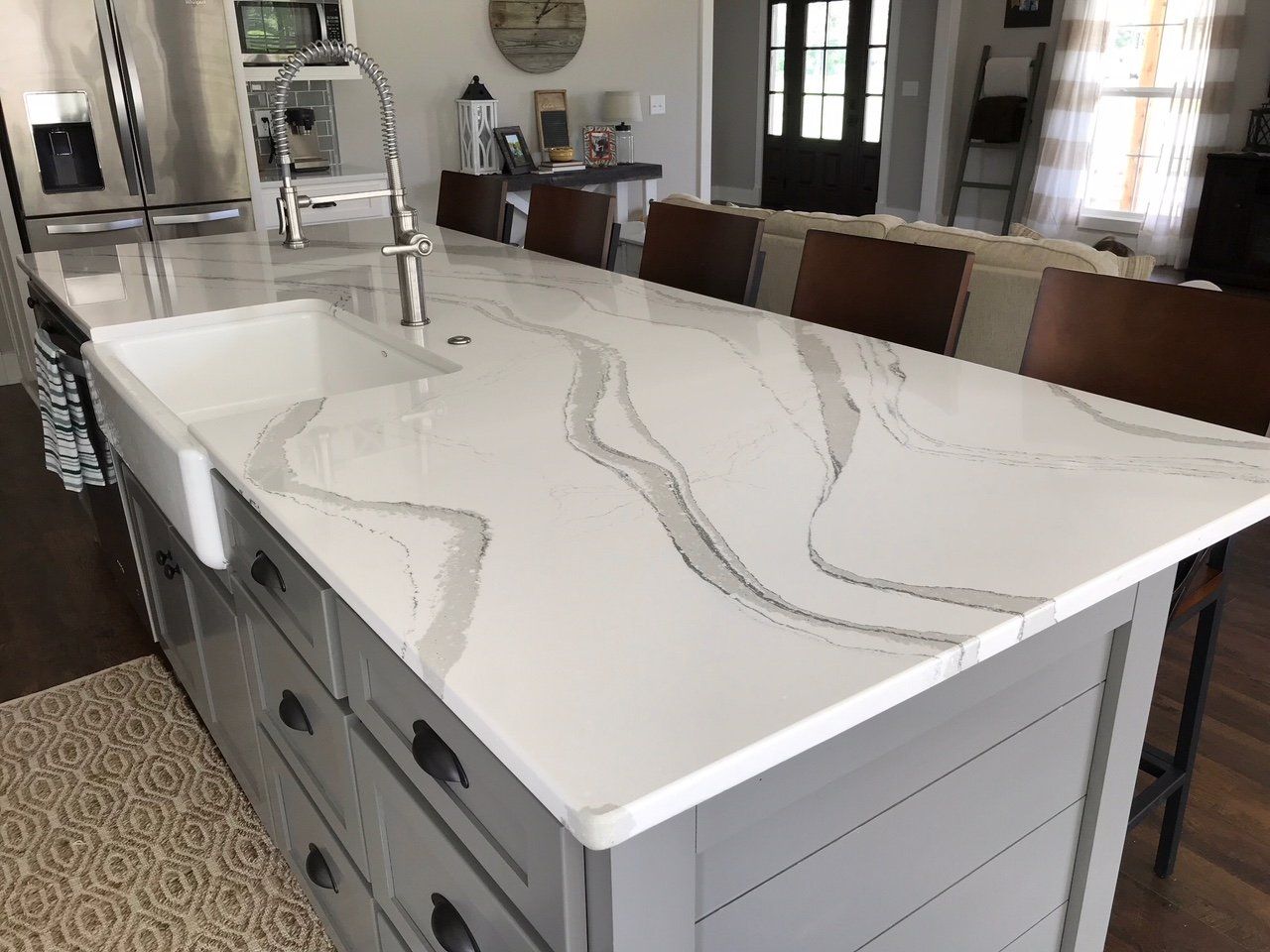
So, you have decided to upgrade your home and purchase new counter tops...perhaps the most important decision you will make during this process will be choosing a fabricator. Whether you choose a natural stone such as granite or a man-made material such as quartz, the quality of the fabrication and installation could be the difference between a beautiful kitchen or nightmare experience.
Today we will discuss seams. What are seams? Seams are where two pieces of counter top material are joined together. Most slabs are no longer than 10 feet, therefore, in most kitchens a seam will be inevitable. At Huntsville Granite & Marble, we do our best to minimize the number of seams as well as make the seam as inconspicuous as possible.
Quality seams require precision craftsmanship and skill. Good seams should be flat, smooth, less than 1/16 of an inch wide, and maintain pattern flow/direction. At Huntsville Granite & Marble, our seams are some of the best in the industry. Check out our gallery page and look at some examples of our seams, if you can find them!
1.) The basics of a quality seam: As mentioned above, the seam should be flat, smooth, inconspicuous, and not noticeable.
2.) Getting a quality seam in a stone that has unique veining: Many of our customers are drawn to unique looking slabs. The uniqueness and veining in natural stones such as granite is what makes it so beautiful, so our objective is to minimize any disruptions.
3.) Seams that maintain pattern flow: As mentioned above, some stones have a directional flow with the pattern or veins. Once again, the failure of your fabricator to not maintain that directional pattern flow throughout your kitchen (or other area) will have a bad result.
As you can see, choosing a fabricator is an extremely important decision. At Huntsville Granite & Marble, we will keep you well informed and educated throughout the entire process. Do not hesitate to call us with any questions at 256-489-3890.
